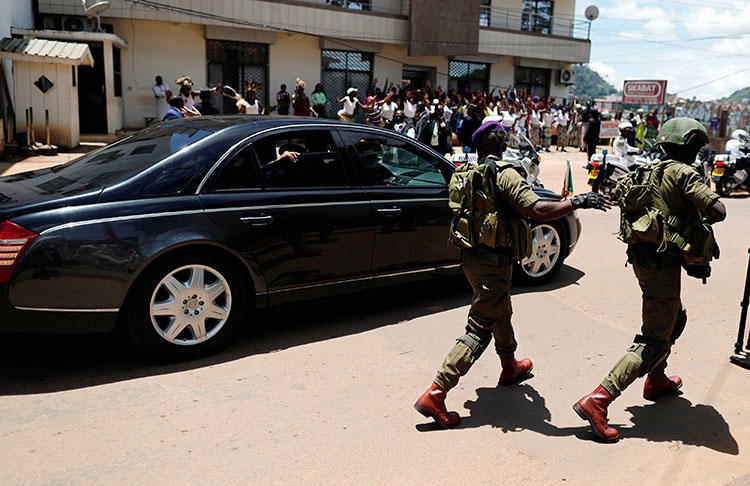Abidjan, January 29, 2019–Authorities in Cameroon should immediately release journalists Théodore Tchopa and David Eyengue Nzima, the Committee to Protect Journalists said today. The two journalists, from privately owned daily newspaper Le Jour, were arrested yesterday while covering an opposition gathering in Douala, Denis Nkwebo, their deputy editor in chief and the president of the Cameroonian journalists’ trade union, told CPJ. Their arrest was also reported by local outlets and journalists on social media.
The journalists were detained at a house where opposition leader Maurice Kamto, who claims to have won the 2018 presidential election, and opposition activists were also arrested, Nkwebo told CPJ. They were mistaken for activists who were gathered at the house, said Nkwebo, adding that the journalists have since been transferred to the judicial police headquarters in the capital, Yaounde, 230 km (143 miles) away. Kamto and the activists are also still in custody, according to Nkwebo.
“Théodore Tchopa and David Eyengue Nzima are journalists who were arrested for simply covering a newsworthy event, and must be freed immediately without condition,” said Angela Quintal, CPJ’s Africa program coordinator, in New York. “Cameroonian authorities should stop trying to intimidate and censor journalists who have a duty to keep citizens informed about the political and economic situation.”
In a statement sent to CPJ, Charles Ngah Nforgang, the union’s spokesman, said first-hand reporting from the ground remained the main source of information for journalists and their presence at such gatherings could not be considered a crime.
CPJ’s calls and text messages to the offices of Cameroon’s deputy justice minister, Jean De Dieu Momo, and the newly appointed communications minister, René Sadi, went unanswered. The police’s national communications chief, Joyce Ndjem, said she does not give comment over the phone and CPJ should come to her office.
Cameroon was the third worst jailer of journalists in Africa, after Egypt and Eritrea respectively, with at least seven journalists behind bars for their work as of December 1, 2018, according to CPJ’s annual prison census.
